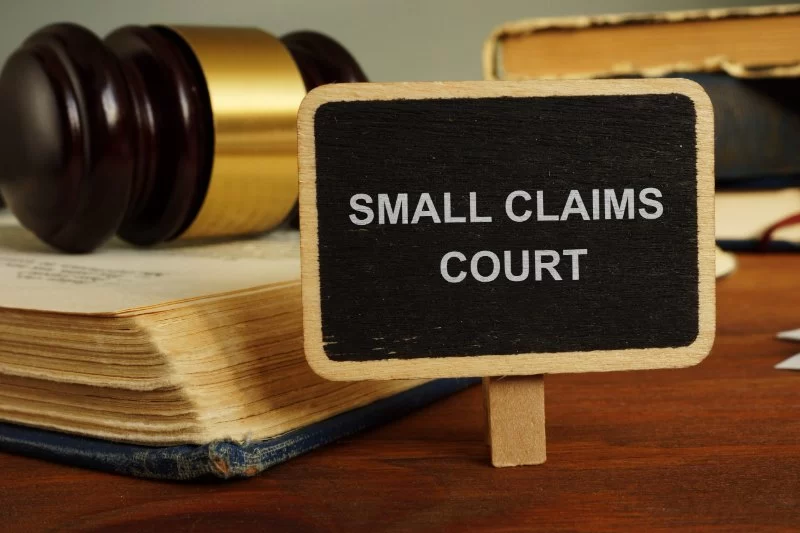- what-is-small-claims-court-and-why-it-exists
- 1-when-should-you-consider-small-claims-court
- 2-how-small-claims-court-works-step-by-step
- 3-real-case-study-of-small-claims-success
- 4-how-fred-miller-lawyer-can-help-you-navigate-the-process
What Is Small Claims Court and Why It Exists
What is small claims court and how it works may sound like a niche topic, but for thousands of people every year, it’s a practical solution to real-life conflicts. Small claims court is a simplified legal process that allows individuals to resolve minor financial disputes without the high costs and complexity of hiring a full legal team. Whether it’s an unpaid loan, damage to your property, or a landlord-tenant disagreement, small claims court offers a fair, fast, and cost-effective path to justice.
1. When Should You Consider Small Claims Court?
Small claims court isn’t suitable for every legal issue—but when money is owed and attempts to resolve it privately have failed, it can be an ideal option.
1.1 Common Scenarios That Lead to Small Claims
Examples include disputes over security deposits, auto repair costs, contractor disagreements, or even unpaid wages. The key element is that the amount involved typically falls under a limit—usually between $2,500 to $10,000 depending on your state.
1.2 Do You Need a Lawyer?
In most small claims courts, lawyers are not required and often not allowed to represent clients during the hearing. This is designed to level the playing field and make the system accessible for everyday people. However, guidance from a legal expert before filing can still be a game-changer, especially when organizing your case.
2. How Small Claims Court Works: Step by Step
The process is surprisingly straightforward—but success depends on being prepared. Here's how it typically unfolds:
2.1 Filing the Claim
First, you fill out a form detailing the dispute, the parties involved, and the amount you're claiming. You’ll submit this to the appropriate court and pay a small filing fee.
2.2 Serving the Defendant
Next, you must notify the other party—known as the defendant—that they’re being sued. This is called “serving” and is usually done via certified mail or by a court officer.
2.3 Preparing Your Case
Gather evidence like receipts, contracts, photos, or written communications. Witnesses can also support your claim. The more organized you are, the better your chances of winning.
2.4 The Hearing
On the scheduled day, both parties present their sides before a judge. There’s no jury. The judge may ask questions and will usually issue a decision immediately or within a few days.
2.5 Enforcing the Judgment
If you win, great—but getting paid may require additional steps. If the defendant refuses to pay, you may need to pursue wage garnishment, liens, or other collection methods.
3. Real Case Study of Small Claims Success
In 2022, a freelance photographer named Leo filed a small claims case in Arizona after a client refused to pay for a completed wedding shoot worth $2,100. Leo had emails, contracts, and time-stamped files as evidence. The judge ruled in his favor, awarding him the full amount plus court costs. “It wasn’t just about the money,” Leo said. “It was about standing up for my work and getting closure.”
3.1 Why His Case Worked
Leo’s preparation made all the difference. He filed correctly, served the client on time, and clearly presented his case. That level of organization is what often separates successful claims from unsuccessful ones in court.
4. How Fred Miller Lawyer Can Help You Navigate the Process
Even though small claims court is designed for simplicity, it's still a legal process. Missteps can delay or damage your case. That’s where Fred Miller Lawyer can help. With years of experience helping clients prepare small claims cases, Fred provides tailored advice on how to present your evidence, understand your rights, and avoid common mistakes.
4.1 Legal Insight, Without the Complexity
Fred Miller doesn’t just explain the law—he makes it work for you. From reviewing your case to helping draft your statement of claim, his guidance increases your odds of success before you ever set foot in court.
4.2 Your Justice, Your Way
If you're considering small claims court but aren’t sure where to start, don’t guess. Contact Fred Miller Lawyer to explore your options and gain confidence in every legal step you take. Justice might be small in dollar amount—but it can mean everything when it’s your money, your time, and your peace of mind.


 samuel sue
samuel sue 1835 university blvd e
1835 university blvd e david centeno law reviews
david centeno law reviews fox and fox attorneys
fox and fox attorneys zarzaur & schwartz p c
zarzaur & schwartz p c best dui lawyer denver
best dui lawyer denver